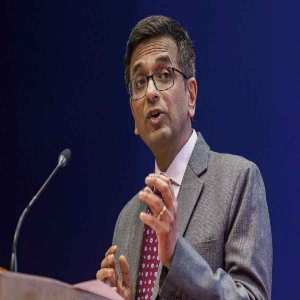
.png) Robert Clements
Robert Clements

Like a ping pong ball going back and forth, arguments for and against the Chief Justice's statements on prayer about a Supreme Court judgement have been raging throughout the country. Chief Justice Chandrachud said he had prayed to God for a solution to the Ram Janmabhoomi-Babri Masjid dispute and asserted that God will find a way if one has faith.
For a few moments, let us keep aside the Babri Masjid judgement, which is fair to some and unfair to others, and focus only on his statement, on which I'd like to quickly draw a parallel from history: King Solomon, who is supposedly the wisest king who ever ruled the earth.
When Solomon took over the throne, he prayed to God, saying, "Give your servant a discerning heart to govern your people and to distinguish between right and wrong."
Was there anything wrong with that prayer? Certainly not.
Soon after, King Solomon was asked to judge a very difficult case when two women came before the king. They were two mothers living in the same house, each the mother of an infant son.
Sadly, one of the babies had been smothered to death in the night, and each claimed the remaining boy as her own.
Calling for a sword, Solomon declared his judgment: the baby would be cut in two, each woman to receive half.
One mother did not contest the ruling, declaring that if she could not have the baby, then neither of them could, but the other begged Solomon, "Give the baby to her, just don't kill him!"
The king declared the second woman the true mother, as only a mother would give up her baby if that was necessary to save its life, and awarded her custody.
This judgment became known throughout all of Israel and was considered an example of profound wisdom, and the people saw that the wisdom of God was in him, to do judgment.
So, praying for wisdom and discernment turned out to be a good thing for that nation, didn't it?
And with that, we have to agree that there's nothing wrong in praying for wisdom.
But let's not stop here; there's more to it.
I believe it's not just about prayer but whether that particular prayer was answered by God, because if you delve deeper into the Solomon story, God does grant him wisdom, but on one condition: "I will do what you have asked. I will give you a wise and discerning heart….. if you walk in obedience to me and keep my decrees and commands."
So, finally, it's not about praying about a decision, which I believe is absolutely right, but whether the judgement that came out of prayer was God's or not. Which depends totally, completely, and fully on the relationship the person has or had with God.
That is the question we should ask today...!